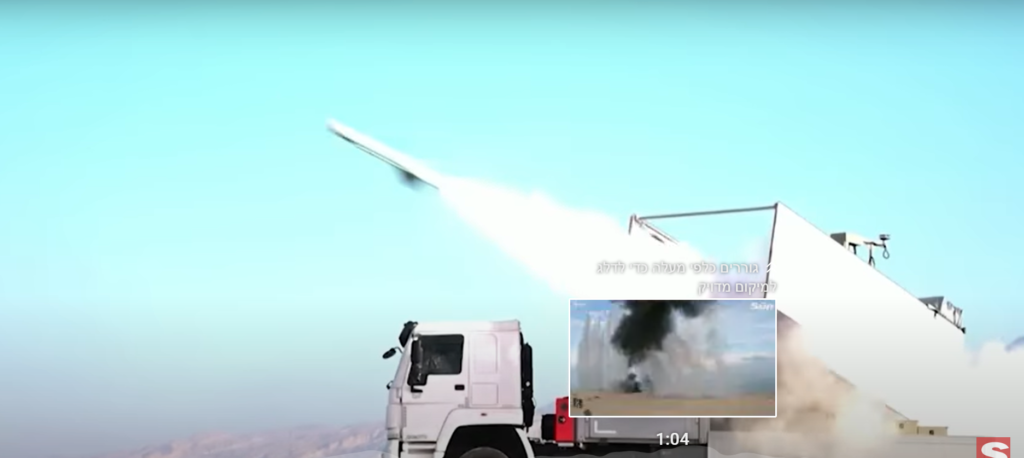Iran is waging a multi-arena war of attrition against Israel, it seems that the episode of limited confrontations against Israel is over and we are in a new type of battle.
The Israeli security establishment estimates that the security events during the month of Ramadan, during which Israel was attacked with rockets from the Gaza Strip, southern Lebanon, and Syria, indicate that from now on this will be the strategy of the axis of resistance led by Iran, and Israel should prepare accordingly.
The Iranians are investing a lot of resources for this war against Israel, Defense Minister Yoav Galant said on April 20 that according to the data of the security establishment, Iran annually transfers billions of shekels to terrorist organizations, including Hezbollah and Hamas. According to him, last year Iran transferred about 700 million dollars to Hezbollah, while Iran transferred about 100 million dollars to Hamas.
The Secretary General of the Islamic Jihad, Ziyad Al-Nakhallah, said on April 21 that Iran transfers to Hamas every year an amount of 150 million dollars.
Iran also transferred hundreds of millions to the militias in Syria, billions to the Syrian government, hundreds of millions to the Houthis in Yemen and hundreds of millions also to pro-Iranian militias in Iraq.
This is how Iran’s affiliates become dependent on Iranian money and they follow the instructions coming from Tehran to increase tensions on the borders with Israel, to make provocations and to be more daring through rocket attacks on Israel.
Iran is opening a new chapter in its struggle against Israel called the coalescing of all arenas against Israel with the aim of splitting its power and weakening it, thus it is gradually establishing the next battle for the liberation of all of “Palestine”.
Iran has invested many resources in creating a strangling ring around Israel using advanced weapons, rockets, missiles and drones and Israel needs to prepare militarily against Lebanon, Syria, Iraq, Yemen and the Gaza Strip.
The danger to Israel is also from the Judea and Samaria areas, armed terrorist groups have arisen in the northern West Bank and are engaging the IDF, the Israeli security establishment already understands that the IDF will have to act more widely against these groups, Iran is trying to create a regional defense umbrella for the terrorist groups in the West Bank and threatens to open A multi-arena battle if the IDF acts against them.
Israeli disappointment from Saudi Arabia
Israel is disappointed and worried about the rapprochement between Saudi Arabia and Iran and the signing of the agreement between them on the renewal of diplomatic relations.
The anti-Iranian Arab axis led by Saudi Arabia has disintegrated and Saudi Arabia is getting closer to Iran, Russia and China.
Prime Minister Netanyahu, who saw the normalization agreement with Saudi Arabia as an important strategic move for Israel’s foreign policy, chose to convey a public message to Saudi Arabia that it might regret its decision regarding Iran.
In an interview with the American CNBC channel, Netanyahu said that “95% of the problems in the Middle East stem from Iran.” According to him, the evidence of the “misery” that Saudi Arabia may experience as a result of getting closer to Iran is Lebanon, Yemen, Syria and Iraq.
Israel is recovering from the U-turn made by Saudi Arabia, and Prime Minister Netanyahu decided to tighten relations with Azerbaijan and Turkmenistan, which lie close to the border with Iran, and sent Foreign Minister Eli Cohen there.
The Iranians fear that Israel is trying to flank them from the north and that the tightening of Israel’s ties with these two countries is intended for Israel to establish bases of the Israeli Mossad on the soil of Azerbaijan and Turkmenistan in order to use them to shake the stability of the Iranian regime.
The tensions between Iran and Azerbaijan are great because of Azerbaijan’s close security ties with Israel and against the background of Armenia’s rapprochement with Iran.
Despite this, Israel has not yet lost hope of promoting normalization with the Saudis, the assessment in Israel is that the agreement between Saudi Arabia and Iran will not last long and it will collapse.
Drawing lessons from Ramadan events
The Iranians directed their efforts to implement their new strategy against Israel for the month of Ramadan and especially for the events during this month in the holy compound on the Temple Mount.
Unfortunately, Israel again this year fell into the trap set by Hamas on the Temple Mount and was dragged into violent action against Palestinians barricaded in the Al-Aqsa Mosque, which served the interests of its enemies who took advantage of the religious sensitivity in everything related to the Al-Aqsa Mosque to ignite fire on other fronts against Israel.
It has once again been proven that the Al-Aqsa Mosque is the explosive barrel of the Middle East, through which it is possible to create a major escalation on several fronts, therefore Israel must immediately change its policy regarding the Temple Mount, especially during periods when Jewish holidays fall near the month of Ramadan.
Israel must reexamine the policy of using force inside the Al-Aqsa Mosque and the security arrangements in the Temple Mount compound to prevent the smuggling of weapons and explosive devices into the compound.
The tasks of the guard force of the Islamic Waqf within the Temple Mount compound, which did not act to prevent riots and flag waving in the compound during the month of Ramadan, must be re-examined, together with Jordan.
Israel must neutralize the sensitivity in the Temple Mount compound that increases every year in the month of Ramadan and establish new procedures that will reduce the risk of violent incidents due to their implications for the security situation.




